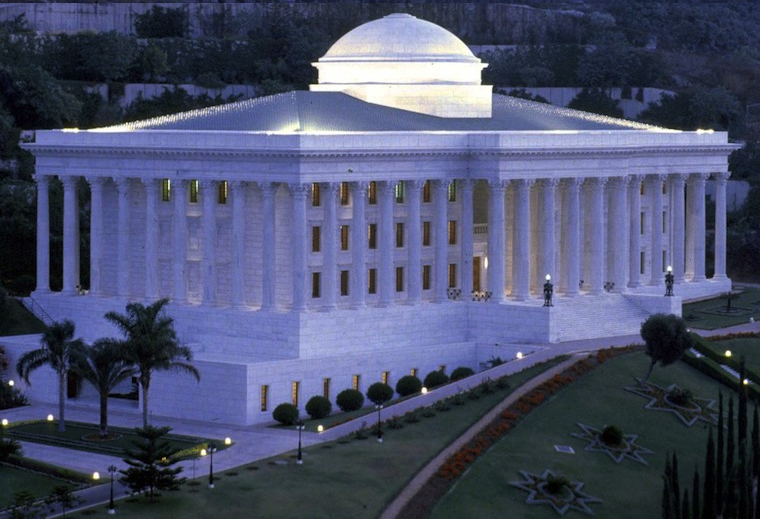
The Universal House of Justice and an ever changing world
 The writings of Bahá’u’lláh are a very considerable religious corpus. Yet within those writings Bahá’u’lláh provides for the guidance and unfoldment of the Baha’i community over the centuries that would follow his passing. Thus in the Kitab-i-Aqdas, his book of laws, he writes:
The writings of Bahá’u’lláh are a very considerable religious corpus. Yet within those writings Bahá’u’lláh provides for the guidance and unfoldment of the Baha’i community over the centuries that would follow his passing. Thus in the Kitab-i-Aqdas, his book of laws, he writes:
Let not your hearts be perturbed, O people, when the glory of My Presence is withdrawn, and the ocean of My utterance is stilled. In My presence amongst you there is a wisdom, and in My absence there is yet another, inscrutable to all but God, the Incomparable, the All-Knowing. Verily, We behold you from Our realm of glory, and will aid whosoever will arise for the triumph of Our Cause with the hosts of the Concourse on high and a company of Our favored angels.
Here, the words suggest that Bahá’u’lláh is referring to an ongoing spiritual reality, such as we have seen in the articles on the Word of God and the Manifestation of God. Yet we see also the provision for sources of wisdom and guidance also in the material world after his passing. The first, as discussed in a previous article was the appointment of Abdu’l Baha as interpreter of Bahá’u’lláh’s teachings, and as the “centre” to which the community was to turn after Bahá’u’lláh’s passing. We have seen how pivotal Abdu’l Baha is, and his role in ensuring the coherence and unity of the Baha’i Faith after his father’s passing, and laying foundations for the oneness of humanity
The second, also provided for by Bahá’u’lláh in the Kitab-i-Aqdas and supplementary texts he appended to it, is the establishment of the Universal House of Justice. This body is the international governing council of the Baha’i Faith. It also is a centre and foundation of oneness. Among its functions are to decide on all that is not explicitly in Bahá’u’lláh’s teachings. It has the power to “legislate” – and not only to make laws, but to change them.
It is incumbent upon the Trustees of the House of Justice to take counsel together regarding those things which have not outwardly been revealed in the Book, and to enforce that which is agreeable to them. God will verily inspire them with whatsoever He willeth, and He, verily, is the Provider, the Omniscient.[1]
Inasmuch as for each day there is a new problem and for every problem an expedient solution, such affairs should be referred to the Ministers of the House of Justice that they may act according to the needs and requirements of the time. They that, for the sake of God, arise to serve His Cause, are the recipients of divine inspiration from the unseen Kingdom. It is incumbent upon all to be obedient unto them. All matters of State should be referred to the House of Justice, but acts of worship must be observed according to that which God hath revealed in His Book.[2]
We may observe that Bahá’u’lláh states that this institution is the recipient of divine inspiration. We may also note how revolutionary this system is in the context of historical processes of religious change in many religious systems. For example, in Christianity, change has often involved division and dispute over “interpretation”. An alternative, perhaps older view, has to be held to be “false” in order for change to occur.
The use of legislation – or decision according to the needs of the time – as a supplement to sacred text, removes the need for change to be effected divisive ways of this kind.
What is unique, is that Bahá’u’lláh has, in his own written word, provided for this process. It is beyond doubt that the Universal House of Justice is empowered to effect change. This is an aspect of the relativity of religious truth: religion needs to continue to evolve and change over time if it is to meet humanity’s changing needs into the future.
(This article is the 154th in a series of what I hope will be 200 articles in 200 days for the 200th anniversary of the birth of Bahá’u’lláh. The anniversary is being celebrated around the world on 21 and 22 October 2017, The articles are simply my personal reflections on Bahá’u’lláh’s life and work. Any errors or inadequacies in these articles are solely my responsibility.)







